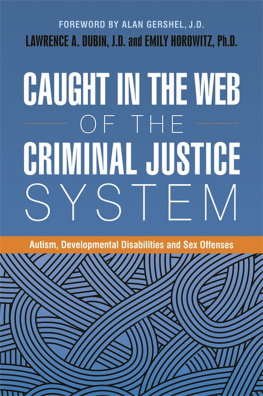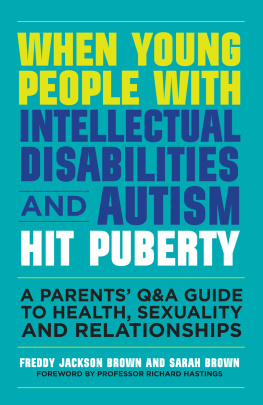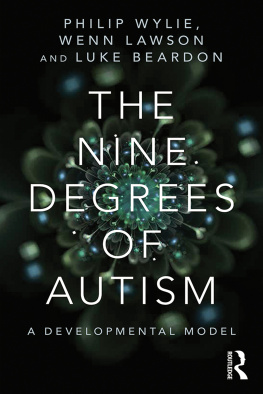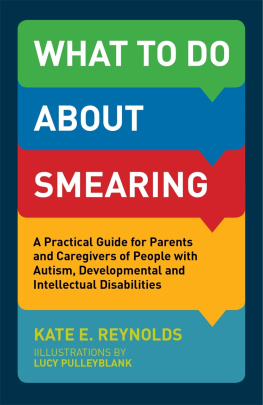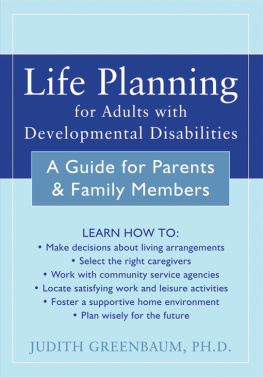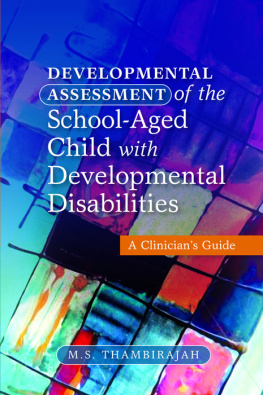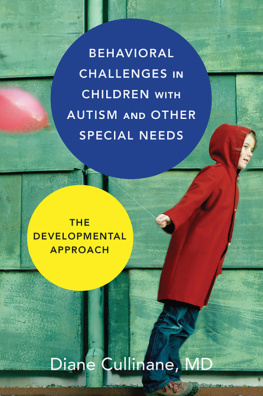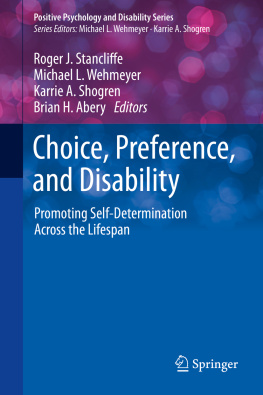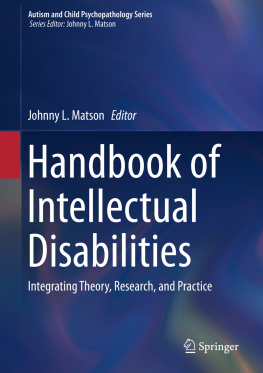
CAUGHT in the WEB
of the CRIMINAL
JUSTICE SYSTEM
Autism, Developmental
Disabilities, and Sex Offenses
Edited by LAWRENCE A. DUBIN, J.D.
and EMILY HOROWITZ, PH.D.
Foreword by ALAN GERSHEL, J.D.
Introduction by MARK MAHONEY, J.D.
Afterword by TONY ATTWOOD

Jessica Kingsley Publishers
London and Philadelphia
Contents
Foreword
Alan Gershel, Former Acting U.S. Attorney
for the Eastern District in Michigan
I am a former assistant United States Attorney for the Eastern District of Michigan. I served in that office for 35 years while acting at times as chief of the criminal division as well as the interim United States Attorney.
In 2009, I retired from public service and accepted a position on the law faculty of Thomas Cooley Law School. Thereafter, I have been frequently contacted to represent people charged with crimes, including by my former office. It is not uncommon for a former prosecutor to use his knowledge of the criminal justice system in thereafter accepting representation of people accused of crimes. There is no moral or ethical barrier that would prevent a former prosecutor from doing so.
When I left my position as a U.S. Attorney, I decided that I would refuse to represent people charged with crimes. I did so because I believed that, after my years as a prosecutor, I had developed a certain mindset that would limit my ability to properly undertake the ethical responsibilities of a defense lawyer. Therefore, on the many occasions when I was offered employment as a defense lawyer, I routinely said, No, thank you.
Then in December 2010, I received a telephone call from attorney Ken Mogill who told me he was representing a client, Nick Dubin, on the autism spectrum who was charged with possession of child pornography on his computer. I had great respect for Ken and knew that the information that he gave me about this case would not be inflated or inaccurate. Ken explained how this young mans neurological disability from birth created a serious social and sexual delay in his development. He further explained that Mr. Dubin had also been examined by leading experts in the field of autism who opined that he was not a threat to anyone and there was a legitimate issue as to the nature and quality of his ability to be held accountable for his criminal responsibility for the charged acts. These experts strongly believed that diversion from the criminal justice system was the best way to resolve this case.
I told Ken I was sympathetic about a person on the autism spectrum being charged with a serious federal crime, but that in general I dont accept defense cases and didnt have sympathy for people who view child pornography. Ken convinced me to at least meet this young man and he would accept whatever my decision was as to joining him in the representation.
I met Nick Dubin at his home a few weeks later. I was very blunt with him regarding my feelings about people who commit the crime with which he was charged. I asked him many very personal questions. Im sure it was an unpleasant experience for him to have to be confronted by specific questions about his sexual thoughts. When we were finished, I told Ken and his client that I would need some time to think about my decision. I undertook some reading about autism spectrum disorders and learned information of which I was not previously aware.
After much reflection in the passing days, I concluded that Mr. Dubin should not be prosecuted and convicted for the crime he was charged with and thereby stigmatized as a lifelong federal felon and a registered sex offender. Although I had great respect for the lawyers in my former office who were prosecuting this case, I believed that they needed to better understand how Nicks autism was a special circumstance that needed to be considered in the exercise of prosecutorial discretion.
I became co-counsel with Ken in representing Nick. We presented a strong and compelling case for Nick to receive diversion from the criminal justice system. Since my role as Nicks defense attorney is the only case that I will ever have as a defense attorney, I feel it is my ethical obligation to state that I believe my former office did not do the right thing in requiring Nick to enter a plea of guilty for the crime of possession of child pornography. All the experts who examined Nick, including two appointed from the government (one being a neuropsychologist for the FBI), expressed clear reasons for why Nick should not be so convicted. Unfortunately, Nick had no real option to go to trial and face the possibility of incarceration, and therefore Ken and I had to recommend that he accept this imperfect plea agreement.
I hope this book opens the eyes and minds of prosecutors and judges and compels defense lawyers to better understand the nature of autism. Getting a conviction in and of itself is not justice when the accused is not a danger to anyone and the crime is understandable due to a neurological disability from birth. Real justice in this case would have permitted Mr. Dubin to have lived his life only with his disability from birth and not the additional disability created by having a felony conviction and having to register as a sex offender.
Introduction
Mark Mahoney, Noted Criminal Defense
Attorney Who Has Expertise in Defending ASD
Individuals Charged with Criminal Offenses
There are too many heartbreaking stories. Stories about families whose child with Aspergers Syndrome, was arrested, convicted, imprisoned and labeled as a sex offender for having accessed child pornography, or engaged in other inappropriately sexual communications, online. Parents were told, even by very experienced defense attorneys, that their sons autism was not a defense and would not make a difference. These lawyers typically knew very little about autism, but knew a lot about how impervious prosecutors typically are to excuses or pleas for sympathy in these cases. Judges, without any in-depth understanding of the autism condition of the accused, or how it relates to the conduct, or to the likelihood of future offending, tended to follow their usual sentencing patternsif not worse, out of fear of the odd defendantimposing prison terms of more than ten years on some and rarely less than five on the rest. This was followed by mandatory sex offender treatment programs ill suited and traumatic to those with this developmental disability. Life for the individual with Autism Spectrum Disorder in prison, on supervision, and labeled as a sex offender is torturous, what I call civil death.
How often this pattern has repeated itself we do not know. Slowly, however, there is change. There is hope. And this book is a reflection of, and an instrument of that change.
Nick Dubin did not go to prison, as he surely would have without extraordinarily informed advocacy and clinical consensus proving that he was no threat to children, despite engaging in what is considered deviant behavior. So this at least sets a hopeful example. But, as any objective reader can tell, it was not necessary to prosecute Nick at all. It was not necessary to label him as a sex offender. And he probably only got probation because his defense team had proven this to be so.
Nicks case was especially challenging because it is so terribly difficult for those investigating and prosecuting violations of child exploitation offenses to understand, or accept, how someone as bright and accomplished as he could not appreciate the social or legal opprobrium directed at this behavior, or why it was considered so wrong, or how he could have an interest in viewing child pornography without having any interest in abusing any child. But in other cases where prosecutors and judges were meaningfully informed of the nature of the defendants autism, and its relation to the behaviour resulting in the charges, and how it can provide assurance that he will follow the rules once he understands them, we have seen many sentences of probation, or prosecutors agreeing to reduce charges to offenses not requiring sex offender registration, or even complete diversion of the case from criminal prosecution. This, of course is what Nicks defense team sought, which is so important, because and having that objective was surely critical to the result achieved, even though it was harsher than what Nick deserved.
Next page
